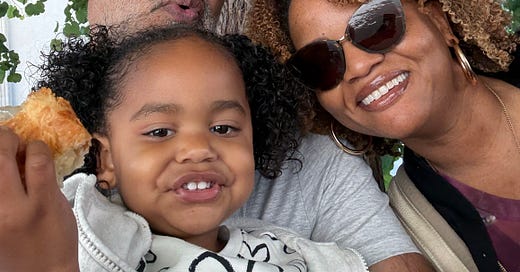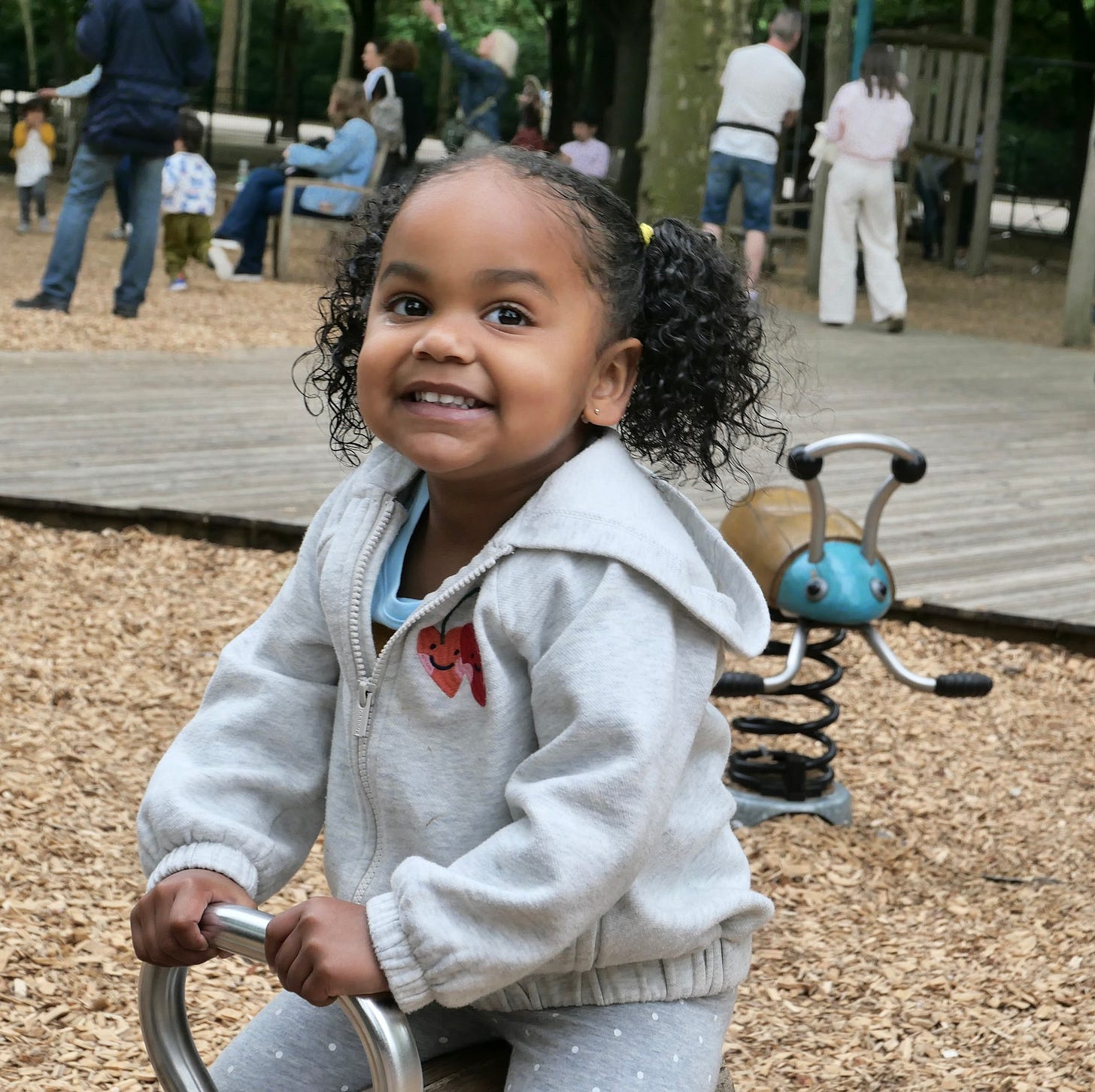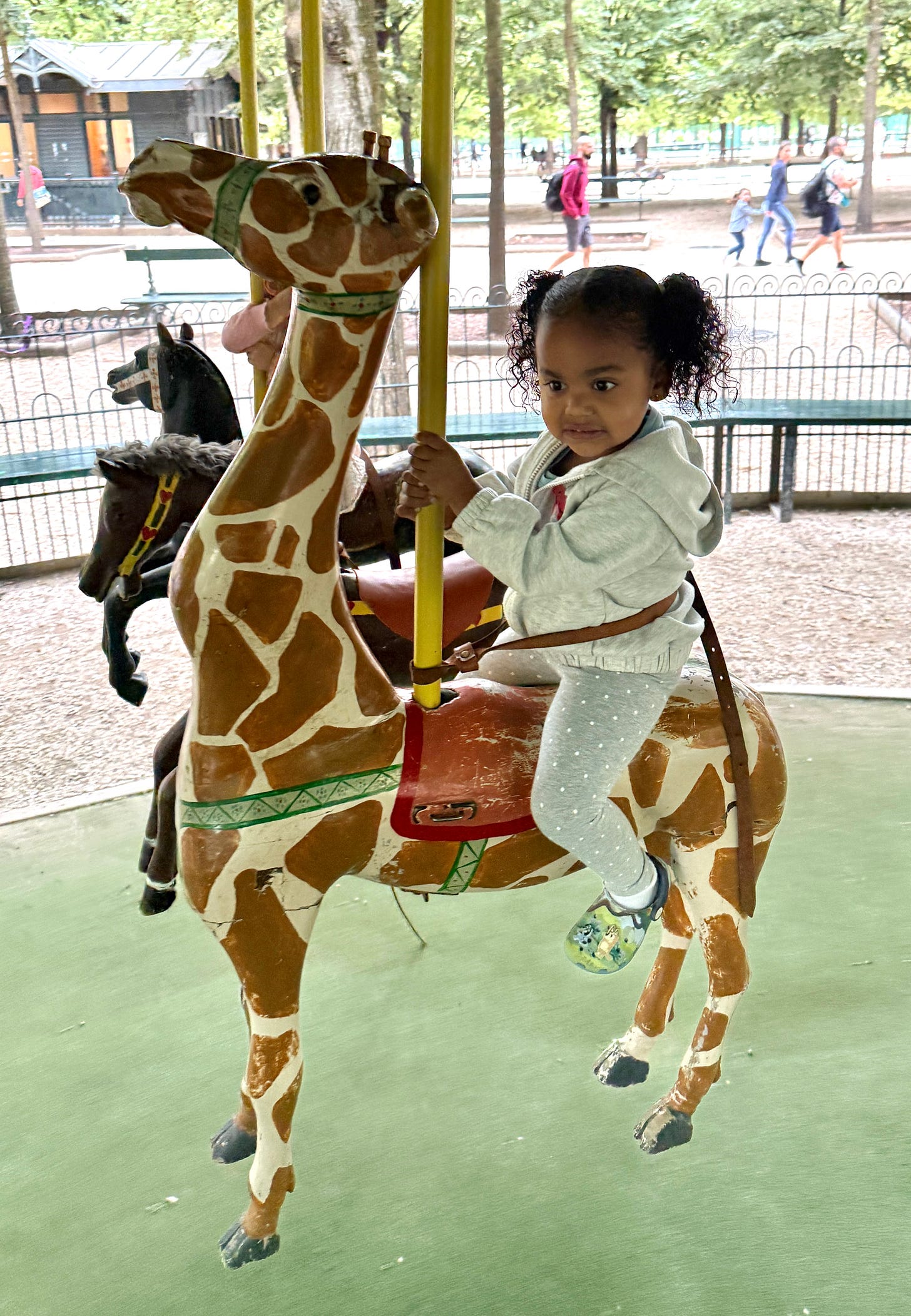Paris with my ladies and fresh croissants. Fabulous.
I need to come clean. I’ve done something that cuts against every grain of my being. Something I never thought I would do. Something that leads me to believe the end is nigh.
I’ve started listening to serious podcasts.
And the one that keeps floating to the top of my feed is Vox Media’s The Gray Area with Sean Illing, “A philosophical take on culture, politics, and everything in between.” I am quite ashamed. Especially since I’ve realized that listening to a smart podcast with a smart guest author is just an excuse not to buy (much less read) said smart author’s book.
In any case, what caught my attention was a conversation Illing had with Leos McGraw, author of The Ideological Brain: A Radical Science of Susceptible Minds. See, in my world, “ideological” has become synonymous with “political.” And I’ve been wondering if that is the right way to look at things.
“I'm really interested in thinking about ideology in a more precise way,” McGraw said, “than we typically think about it as, which is not just as a, a broad system of beliefs floating above our heads in an ambiguous way or something that's purely historical or sociological, but it's something that's really deeply psychological and that we can see inside people's brains.”
Which starts to get at the crux of my question: Which comes first, political or ideological?
In Politics, Aristotle writes, “Man is by nature a political animal. And therefore, men, even when they do not require one another's help, desire to live together.” In more simple terms, political is merely the fact we live in communities, alongside one another, constantly trying to figure each other out.
Within our communities, McGraw says we run the risk of becoming too rigid as our curiousity about the other becomes a harsh judgement of the other:
So an ideology will always have a certain kind of causal narrative about the world that describes what the world is like, and also how we should act within that world. It gives prescriptions for how we should act, how we should think, how we should interact with other people. But that's not the end of the story. To think ideologically is both to have this fixed doctrine and also to have a very fixed identity that you really kind of judge everyone with.
Look, I am not smart enough to parse the cases made by Aristotle, much less McGraw. I’ve only just started listening to smart podcasts.
But, I did notice that in Democracy’s Discontents, Michael J. Sandel quoted Benjamin Franklin, “Only a virtuous people are capable of freedom. As nations become corrupt and vicious, they have more need of masters.”
This is not good. We are political animals who want to live together and judge each other and, after nearly 250 years of trying this arrangement on for size, we are at each other’s throats because, hot take alert, we have become a less than virtuous people.
Instead of figuring out how to expand, or even deepen, our personal relationships, we are on the verge of a technological revolution where the powers-that-be want all of our friends to be chatbots seen through knockoff RayBans.
(Side note: 1988 Cranky Dad is wondering when classic Vuarnets come back into fashion.)
The world is getting awful brittle. We think what we think. If we are challenged to think differently, we break. At the same time, the world becomes less and less predictable. So, in the face of uncertainty, we become more rigid, even more brittle. It is quite the doom loop.
Of course, as an old-man-girl-dad, I feel like I am better prepared than most to deal with these challenges. I am not.
This is where my delusions of parenting grandeur run into the reality of a two-and-a-half year old. Ideological brittleness is a function of every meal, most bedtimes, and the precise flavor of popsicle.
Fortunately, Toya is way better at this than me.
While I am flying forks of food around the table, pretending they are airplanes crashing into Anisa’s closed mouth, Toya understands what Baby Girl wants and doesn’t want. Constistencies of food. Types of people she wants to spend time with. When she is tired, when she just wants to play a few more minutes before eating.
Toya’s parenting ideology is far less rigid than mine. Anisa’s ideological brittleness really isn’t a thing either. She is contending with a series of emotions, wants, needs for the first time in her life. The least I can do is come along for the ride and try to understand this amazing little human being.
“When you start to embody flexible thinking in your everyday life,” McGraw says, “in the way in which you psychologically approach the world, that will bleed into the way in which you evaluate moral space, the political space, the ideological space. And so if we wanted to cultivate that flexibility in children, in fellow adults, it would be about encouraging that kind of flexibility in all things.”
Which is probably easier said than done. Because as much as I hope Anisa is flexible in her thinking, clear in her principles and rigid in her ethics, it is a lot to ask. So, instead of asking this of our kids, so they save us from ourselves, perhaps we should ask this of ourselves.
Paris Playgrounds
Someone once told me that a relationship isn’t truly tested until you’ve traveled internationally. Of course, when I mentioned this to Toya, after five years together that included COVID, an engagement, a wedding, the passing of my father, a cross-country move and the arrival of Anisa, but no international travel, she rolled her eyes (to put it kindly).
So I write to you from our first international trip: Paris. Where we have been popping around this fabulous city of lights on buses, trains, strollers and feet. The Parisian meander from macaroon shop to ice cream stall to museum has been fantastic.
With Baby Girl, though, there is another stop.
Because while I am working hard to become a connoisseur of French cheese, wine and bread (thoughts and prayers for my next blood test panel), Anisa has quickly become an aficionado of the Parisian playground. And they are very different from what we find back home.
First of all, everything is a rope ladder or climbing wall. Hardly a staircase to be found. Baby Girl isn’t quite tall enough to clamber up everything. But she gives it a try. Because the slides are awesome. None of those plastic slides that slow you down. Instead, every slide is shiny hard metal that could fry an egg on a hot day, shooting a little one downwards until they thump onto ground unprotected by masticated tires.
Up Anisa jumps, squealing, “Let’s do it again!” before heading off to the swings-with-no-baby-seats and sandboxes filled with pebbles. She could not be happier.
Of course, toddler jet lag is a thing. So the first couple nights have been tough on all of us. Especially Baby Girl. But she soldiers on. Napping in the stroller while we wander the streets. Thrilled by the idea of hot croissaints out of the oven for breakfast, creamy ice cream in the afternoon and a dinner that is far-too-late for a two-year old.
Which brings me to our Paris revelation.
The first few nights, we hung onto our hope of being good parents. Crayons and sticker books at dinner. Distractions that lasted till our orders were taken. Then, a rushed meal, hoping to finish before the, “Why am I up so late?!” meltdown. Which usually meant one of ustaking Anisa home early to get to bed.
Tonight, we sat down and, no questions asked, broke out the iPhone, asked for the WiFi password and fired up Bluey.
Best meal of the trip. For everyone.
Ideological flexibility for the win.
Reading
As noted above, I am working through Sandel’s Democracy’s Discontents. Just a fascinating history of the political economy of citizenship. The foreword alone is mind blowing.
Watching
I thought the last season of Last of Us was meh. Just felt over-written most of the time. Kind of sad I am missing a pretty awesome NBA Finals; both teams are just fun to watch. Open to other recommendations.






